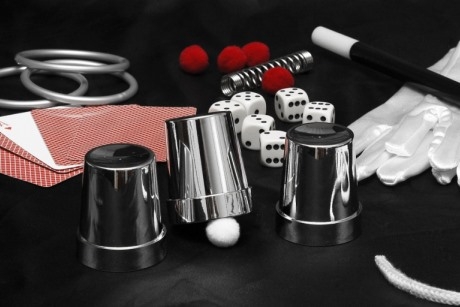
Fidget spinners are the latest school bag must-have. STO looks into what school trip planners could learn from the craze.
This month, schools across the country have been banning fidget spinners from classrooms.
Originally created to relieve stress amongst ADHD and ASD pupils, the gadgets have suddenly become popular with children across the board, as they attempt to carry out tricks and stunts using the devices.
Schools that have banned the gadgets say they are distracting pupils in the classroom. Some educational establishments have even branded them as 'dangerous'.
Love them or loathe them, though, these irritating gizmos could actually tell us a lot about what motivates children. In turn, this knowledge could be used to organise an engaging and educational school trip.
Newspapers reporting on the fidget spinner craze have all commented on how it's the challenge of the tricks that can be completed using the gadgets that has caught the imaginations of children.
Conveniently, several recent studies have linked tricks and the learning of practical stunt-style skills to positive educational outcomes.
In February The Times Educational Supplement published an article on how teaching children magic tricks could help with their education, and their speaking and listening in particular.
In September the year before, the Physical Literacy project for Schools suggested that incorporating circus-style tricks like juggling and plate spinning into PE lessons could lead to improved key movement skills in pupils aged 10 to 11, as well as a better level of engagement with lessons, especially amongst girls.
Then there are various school trip providers across the UK that teach circus skills, or use the concept of magic tricks, to engage pupils in a whole range of curriculum-linked subjects.
Magical Circus hosts educational sessions for both Primary and Secondary schools in its circus-themed venue in Birkenhead. A typical visit for Year 6 begins with an assembly, moves on to a professional performance of circus skills, and then includes circus skills workshops, a session on the history of the circus, and a creative circus-themed art and writing competition, all relevant to the curriculum.
The National Centre for Circus Arts offers workshops that link circus skills and tricks to various areas of the National Curriculum, from PE, Drama and Citizenship to Science. Two-hour workshops typically introduce pupils to three separate skills. Choices include juggling, hula hoop, tightwire, stilts and acrobalance. Visits link especially well to the Key Stage 1 IPC Circus Movement and Entertainment topic. However, teachers of all Key Stages can work with the centre to tailor visits to bring other subjects, like those mentioned above, to life.
In October, the British Library will launch its Brief History of Magic exhibition. Timed to coincide with the 20th anniversary of the publication of Harry Potter and the Philosopher's Stone, the exhibition will display wizarding books, manuscripts, and magical objects. Pupils visiting the exhibition will be able to learn about everything from history to astronomy as they explore the collections on display. School tickets are expected to go on display next month.
Alnwick Castle, meanwhile, uses the concept of trickery and magic to inspire pupil learning in its Witches, Wands, Wizards and Knights workshop. This session starts with the castle's 'resident wizards' leading pupils through a craft class in which they make magic wands. Once the wands are complete, pupils will take part in a story telling session, eventually becoming a troupe of Medieval players and acting out their tale.
Finally, The UKCF Academy in Oxford runs two-hour workshops for visiting schools that are designed to get pupils engaged with exercise and sport. Teachers can select from a range of activities for their pupils, including silks, aerial trapeze skills, tumbling, Parkour, juggling and diablo.










